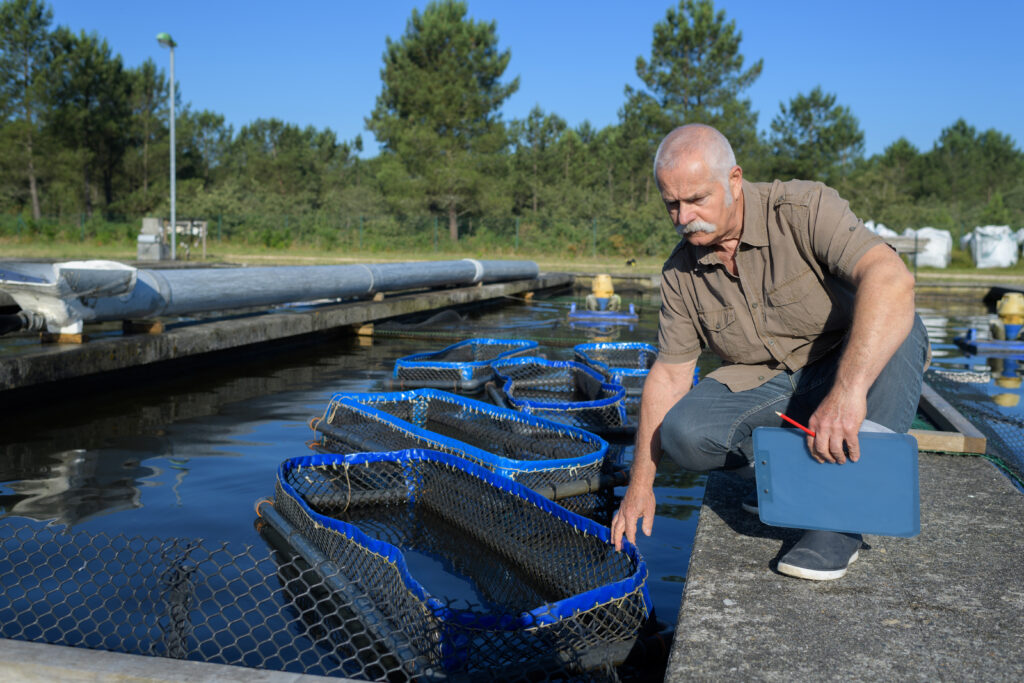Open minds

The US public could be ready to give aquaculture a cautious welcome, a new survey suggests.
For a people renowned for enterprise and innovation, especially in food production, Americans have been surprisingly ambivalent about the benefits of aquaculture.
Alaskans don’t want it in their backyard and the majority of US consumers prefer to eat wild-caught salmon rather than the farmed variety. At best Congress remains lukewarm despite industry pressure.
Ranked at number 17 on a global scale, the United States remains a minor player in aquaculture, preferring to import most of its seafood. Much of what it produces itself in aquaculture is not finfish such as salmon, but farmed oysters, mussels and clams.
However, according to a recent nationwide poll conducted by the highly respected Environmental Defence Fund (EDF), US consumers could be ready to embrace more home-grown production.
EDF, which began when an ad hoc group of scientists got together in the 1960s to save the osprey from the toxic pesticide DDT, is now one of the world’s leading environmental organisations. It periodically turns its attention to various aspects of American life as it affects the natural world.
What voters think
The poll, conducted by Benenson Strategy Group, surveyed 800 registered voters nationwide from 9 July to 15 July 2021. The margin of sampling error was plus or minus 3.4% at the 95% confidence interval.
EDF says the poll included registered voters “because they elect the decision-makers on these issues and tend to be the main focus for Congress and state legislatures across the country.”
Nearly 70% of the respondents who eat seafood were concerned about where it originates. Nearly 90% of voters were in favour of increasing regulation, setting higher standards for seafood, making seafood more sustainable for the long term and reducing the environmental harms that can result from fish farming.
About 73% said they were likely to eat more seafood if it was raised or caught in the US and 71% were likely to increase their consumption if it came from sources proven to be sustainable.
The Environmental Defence Fund says Americans import more than 85% of all the seafood they eat, of which more than half is farmed. It often comes from countries that lack strong standards for safety, environmental protection and other issues, which probably goes unnoticed by many consumers.
The poll did raise serious concerns about foreign aquaculture, especially around reports of overcrowded fish pens and the overuse of antibiotics, with 55% saying they were very worried.
The public also expressed concerns about domestic aquaculture for some of the same reasons, including the perceived threat to oceans and the livelihoods of conventional fishermen. Then there is the growth in offshore aquaculture where farms are positioned in deeper and less-sheltered waters with stronger ocean currents. This is now a common practice in countries outside of the US, particularly Norway.
But the most interesting result from the survey is that most Americans are not intrinsically anti-fish farming with 84% saying they would support the practice provided it was properly regulated.
Seven out of 10 polled said they would eat more fish if it had been caught or farmed in US waters, where they believed environmental, safety and welfare standards were generally higher than in many parts of the world.
EDF says: “Over seven in 10 American voters would eat more seafood if there were higher safety standards on how farmed fish are produced. Voters have concerns about the health and environmental impacts of both foreign and domestic aquaculture.
“Voters want more consumer protections and stronger regulations on farmed fish sold in the US, and more seafood raised here using those higher standards.
“There is strong support for a proposal to ‘first examine the risks and opportunities of fish farming in US federal waters, before setting high standards and regulation for safe and sustainable aquaculture’.”

Those polled rejected extreme stances on both sides of the aquaculture debate, with the overwhelming majority preferring the proposal above to either immediately opening federal waters or forever keeping them closed to aquaculture.
The report concludes: “Across the country and partisan lines, Americans believe fish farming in US federal waters needs to be done right – that means taking the time to research the benefits and risks so we can develop high standards that keep Americans healthy and our environment safe.
“When presented with competing arguments from both the left and the right, a strong majority of voters side with an approach to aquaculture that keeps our environment safe, while offering benefits to the economy.”
The majority said huge “factory” fish farms should never be built in US waters, claiming that industrial aquaculture dumps fish waste and antibiotics into the seas and makes climate change worse. Industrial fish farming also threatened fishermen’s livelihoods and coastal economies.
Yes to farms, no to ‘factories’
When carried out correctly, EDF says, fish farming is the most environmentally friendly and low-carbon way to produce not just seafood, but any animal protein for human consumption, and it creates a sustainable seafood supply to feed the country and the world.
And this view was held by 62% of people surveyed, who also said US federal waters should be opened immediately to private companies. Not only would that create thousands of jobs, but it would also secure the nation’s food supply.
Eric Schwaab, Senior Vice-President for ecosystems and oceans at EDF, says: “Americans value local seafood and want to know that the fish they eat is caught or raised safely and sustainably.
“As aquaculture is increasingly a part of our seafood choices, special efforts are needed to get aquaculture right. By developing a new national standard, the United States can lead the way in ensuring that we meet consumer demand and grow local business while also reducing the environmental footprint of food production.”
Find out more about the Environmental Defence Fund at www.edf.org

